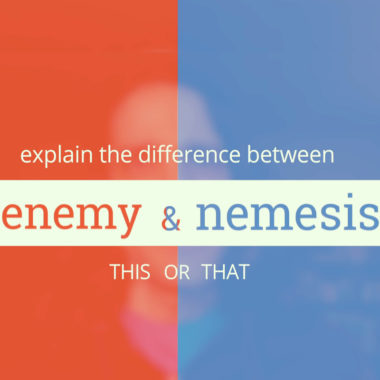Explain The Difference Between Enemy vs. Nemesis
Who do you think would win an epic showdown like this one? We often see these words used interchangeably, but there are some subtle differences between them. An enemy is a foe who’s hostile toward the protagonist (or central character) of a story. A nemesis is an opponent or rival whom a protagonist can’t overcome. The Enemy In literature, an enemy is often referred to …











